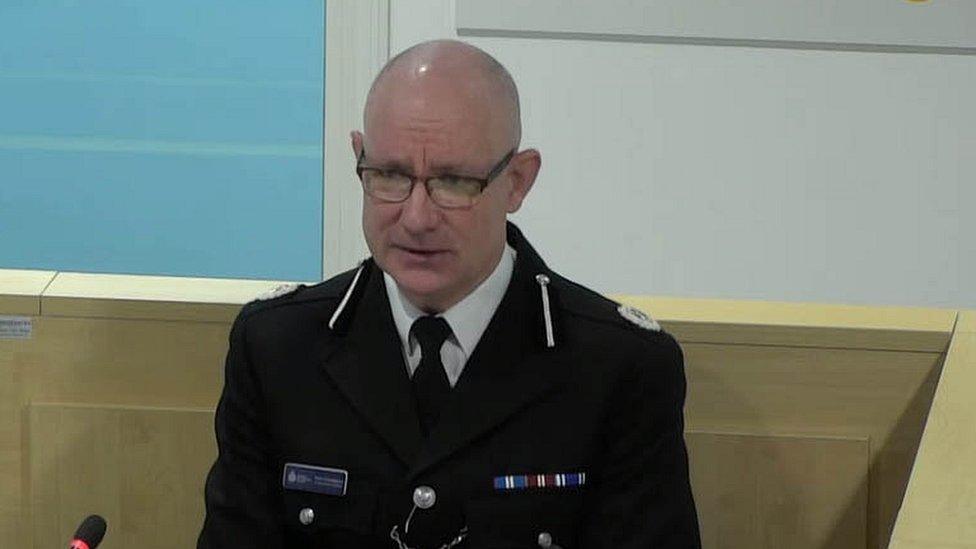Manchester Arena Inquiry: Salman Abedi 'in contact with convicted terrorist'
- Published
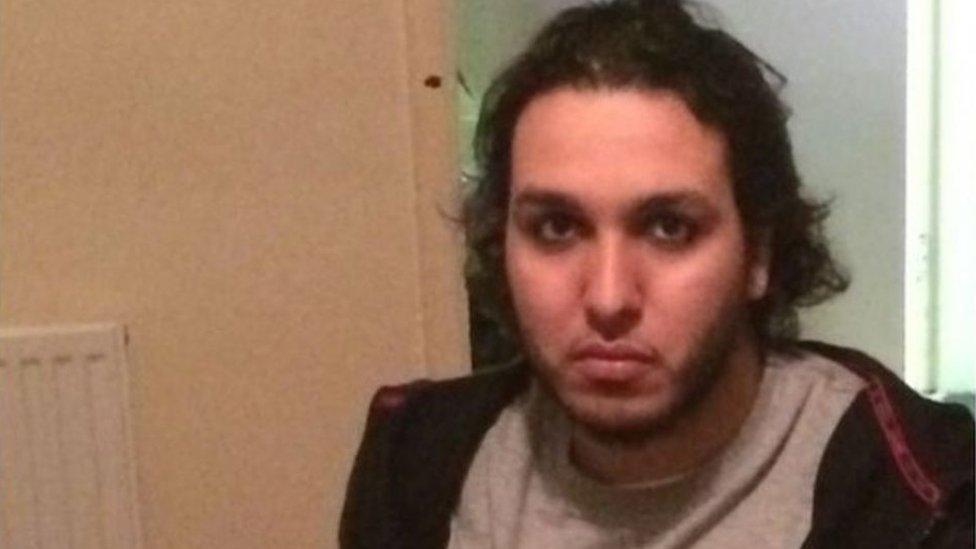
Abdalraouf Abdallah had been jailed in 2016 for helping associates travel to Syria to join the Islamic State group
A convicted terrorist who spoke to the Manchester Arena bomber on an illegal prison mobile obtained another phone after the first was confiscated, a public inquiry heard.
Abdalraouf Abdallah, 27, was released from prison on licence last month on what are said to be strict conditions.
He is an important witness, but refuses to answer questions about contact with Salman Abedi, the inquiry has heard.
Abedi's suicide attack killed 22 people at the end of a concert on 22 May 2017.
The inquiry is investigating how extremism is tackled in prisons and what is done to monitor contact with inmates who have been involved in radicalising others.
In the months before the attack, Abdallah was visited in prison by Abedi and the pair also communicated by phone.
Abdallah had been jailed in 2016 for helping associates travel to Syria to join the Islamic State group.
A mobile that was confiscated from him in HMP Altcourse in February 2017 showed multiple contacts with Salman Abedi, who was at the time preparing the atrocity.
But the inquiry heard that another associate - Mohammed Alzoubare - was able to speak to Abdallah in prison in May 2017.

Top row (left to right): Alison Howe, Martyn Hett, Lisa Lees, Courtney Boyle, Eilidh MacLeod, Elaine McIver, Georgina Callander, Jane Tweddle - Middle row (left to right): John Atkinson, Kelly Brewster, Liam Curry, Chloe Rutherford, Marcin Klis, Angelika Klis, Megan Hurley, Michelle Kiss - Bottom row (left to right): Nell Jones, Olivia Campbell-Hardy, Philip Tron, Saffie-Rose Roussos, Sorrell Leczkowski, Wendy Fawell
He also visited Abdallah there several times and on one occasion had planned to visit accompanied by Salman Abedi.
Mr Alzoubare, described in court as a "long-standing associate" of Abedi, spoke to Abdallah for more than 90 minutes between 20 and 22 May, including a 38-minute call on the evening of the blast.
The inquiry heard that Mr Alzoubare had spoken to Salman Abedi three days before the bomber returned from Libya on 18 May 2017.
He then sent Abedi the mobile number of an associate called Elyas Elmehdi, whom the inquiry has heard remains a suspect in the police investigation into the arena attack.
While Abedi was out of the UK, a car that he used to store explosives was parked at an address associated with Elmehdi.
Elmehdi, who fled to Libya last year, visited Abdalraouf Abdallah in prison the day before Abedi flew back from the Arab state.
The inquiry has been told that, when Mr Alzoubare was interviewed by police last year, he described being "surprised" to receive the call from Abedi in May 2017 and that he was "shocked when I heard and read it was Salman who was responsible for the attack as I thought he was still in Libya".
Previously, neither the Ministry of Justice nor G4S, which ran the relevant prison, would provide a statement to the BBC when asked how it was possible for a serving terrorist prisoner like Abdallah to obtain a phone.
The inquiry continues.

Why not follow BBC North West on Facebook, external, Twitter, external and Instagram, external? You can also send story ideas to northwest.newsonline@bbc.co.uk, external
Related topics
- Published9 December 2020
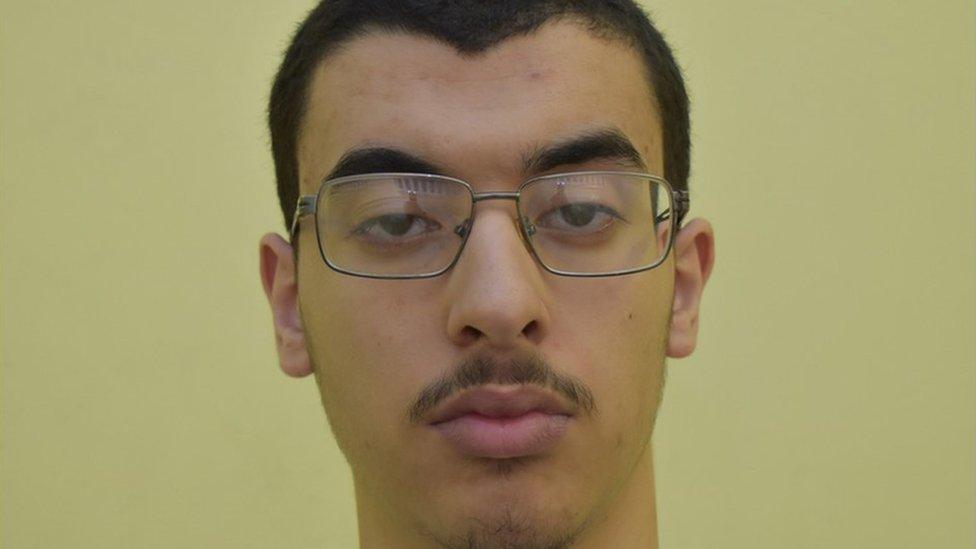
- Published2 December 2020
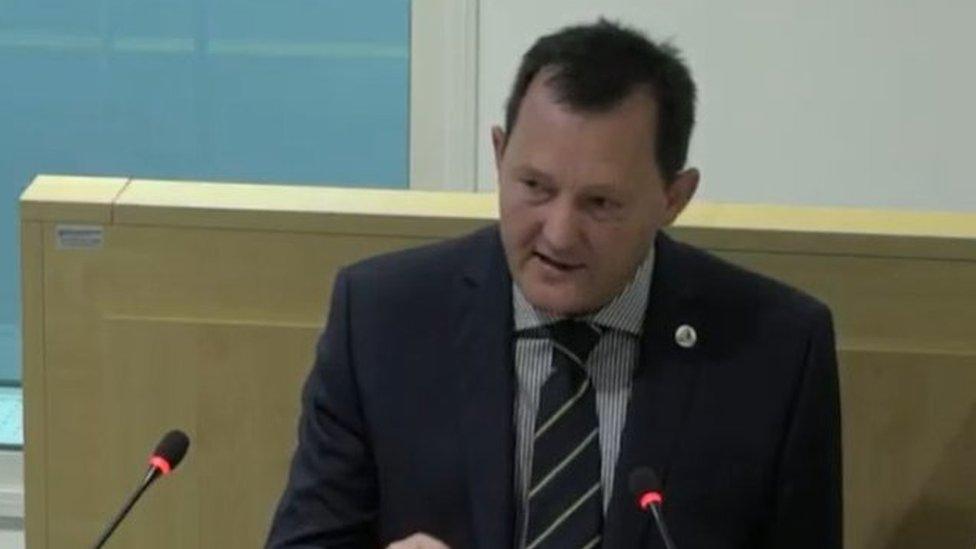
- Published1 December 2020

- Published30 November 2020
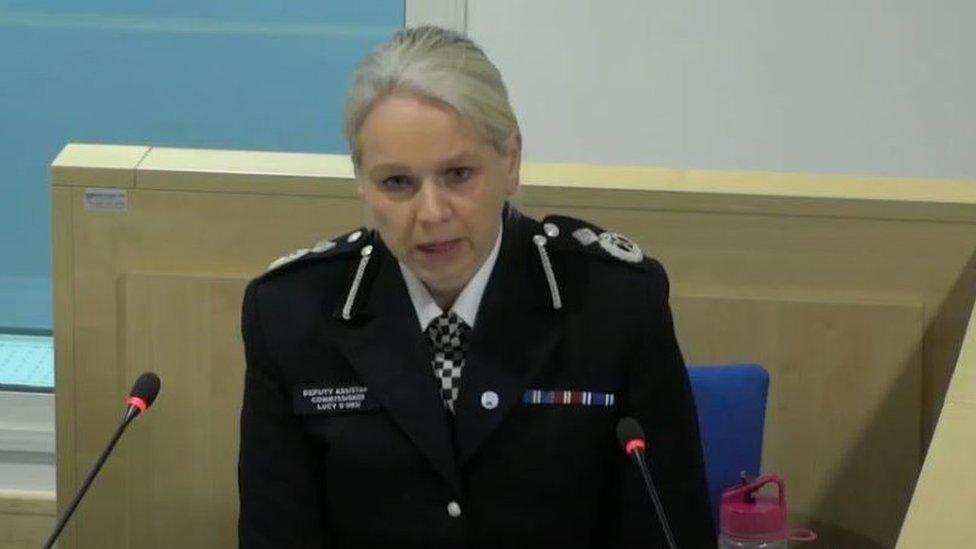
- Published17 November 2020
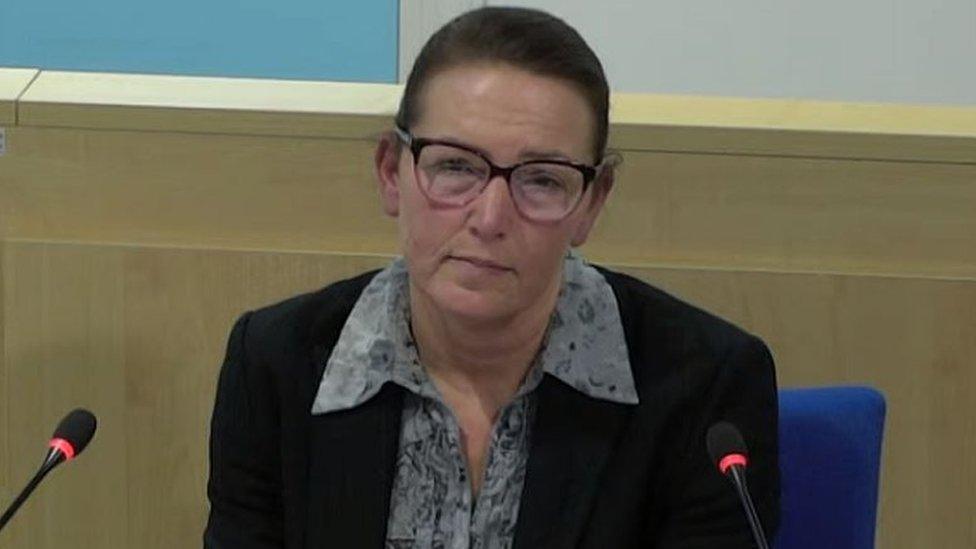
- Published16 November 2020
